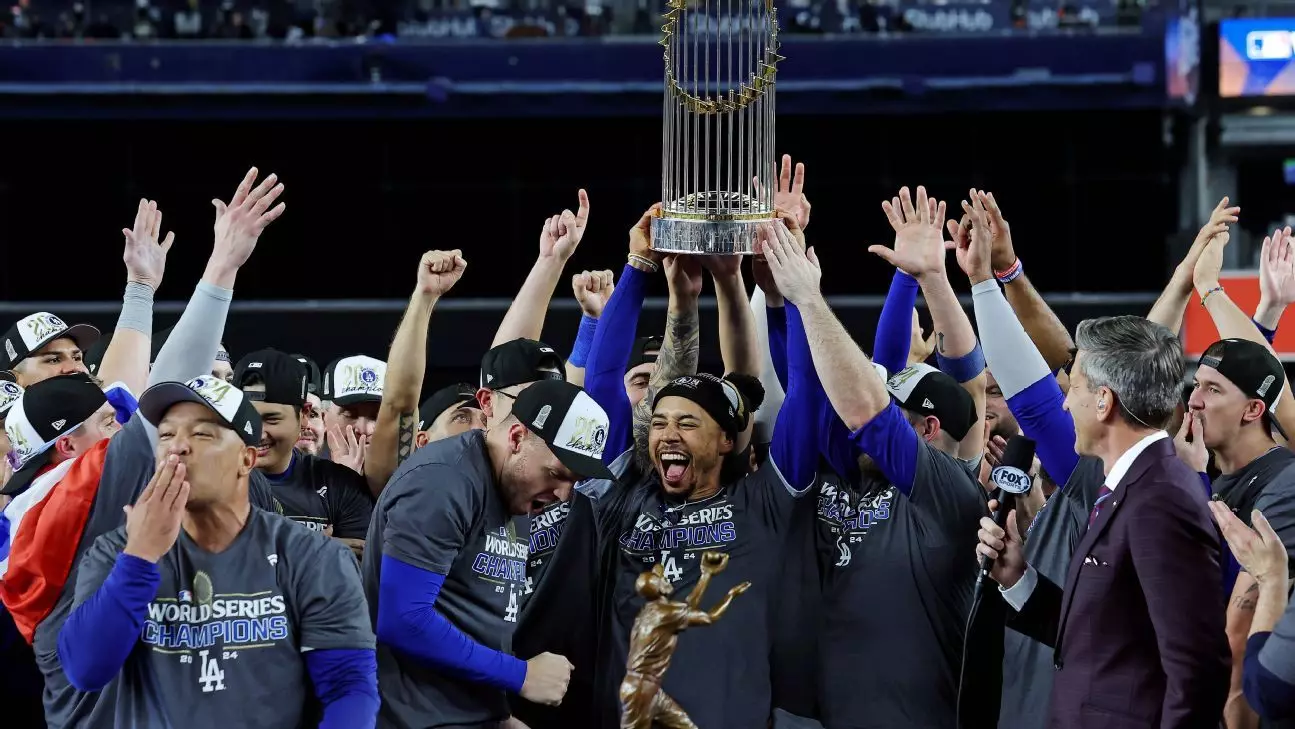The Los Angeles Dodgers’ recent decision to accept an invitation to the White House marks a significant milestone not just for the team but for baseball as a whole. Scheduled for April 7, this visit is an opportunity to celebrate their hard-fought 2024 World Series championship—a victory that resonates deeply with their fervent fan base and underscores a legacy of excellence. The juxtaposition of sports and politics is a complex one, yet it highlights the cultural significance athletes have in contemporary society. In transcending the boundaries of sport, this event allows the Dodgers to reinforce their status as champions in more than just baseball.
Manager Dave Roberts articulated the honor of this recognition, indicating that it is not only a personal achievement for the team but also a collective recognition of their place in American history. This acknowledgment serves as a reminder that the accomplishments of professional athletes often contribute to broader narratives within the community, transcending the game itself. While every World Series champion traditionally receives this honor, the Dodgers’ visit taps into a deeper vein of pride and accomplishment, especially in a city like Los Angeles, where sports are interwoven with cultural identity.
A Visit Amid Controversy
What adds an intriguing layer of complexity to the Dodgers’ upcoming visit is the controversy surrounding the removal of a story detailing Jackie Robinson’s military service. The story’s omission, which aligns with President Trump’s efforts to sanitize governmental references to diversity, equity, and inclusion (DEI), cannot be overlooked. Robinson’s legacy as a trailblazer in both sports and civil rights is a poignant reminder of the role athletes play in societal progress. The deliberate scrubbing of his military history raises alarms about the prioritization of narratives that align strictly with political ideologies over universally accepted historical truths.
Roberts’ response to the re-emergence of Robinson’s story underscores an important perspective within the region and the sport. His expressed values regarding increased diversity within the ranks of Major League Baseball contribute to a larger dialogue about inclusivity and representation. Although he conveyed a sense of surprise at the initial removal of the Robinson story, his subsequent support for its reinstatement indicates a belief in the necessity of preserving multifaceted historical narratives that celebrate the contributions of all Americans.
Reflections on Political Engagement
Roberts’ previous hesitations regarding a White House visit not only reflect the personal sentiments of athletes in navigating political landscapes but also speak to the evolving relationship between sports and politics. The manager’s earlier stance—expressed in 2019—questioned the intersection of patriotism and professional sports, positioning the player as both citizen and advocate. However, his willingness to attend the upcoming event suggests a maturation of thought around respect for the office and the broader implications of engagement with governmental leadership, irrespective of varying political landscapes.
The Dodgers’ history of White House visits ties them firmly to the larger historical narrative of American professional sports and their role in national conversations about race, policy, and community engagement. The fact that this visit comes under a different political administration than their last further complicates the narrative. During the prior administration, tensions regarding California’s environment and politics showcased an ongoing struggle between local governance and federal oversight. Presently, the Dodgers find themselves in a sport that reflects in real-time the pulse of the American people, and their visit is emblematic of that interplay.
Civic Duty and Philanthropic Commitment
Moreover, the Dodgers’ commitment to participating in community initiatives, such as those aimed at wildfire recovery efforts in Los Angeles, highlights the team’s dedication beyond the diamond. Collaboration led by prominent figures like chairman Mark Walter and the legendary Earvin “Magic” Johnson demonstrates a proactive approach to local dilemmas. With a financial commitment of up to $100 million to support these efforts, the Dodgers acknowledge their responsibility as significant community players.
The Dodgers’ planned White House visit is much more than just a celebratory gesture; it is an affirmation of their legacy, an engagement with political narratives, and a commitment to community responsibility. By navigating these intertwined realms, the Dodgers are poised to leave a lasting impact both on and off the field. The complex dance of sport and politics continues to shape the experience of being an athlete in today’s America, and the Dodgers are undoubtedly at the forefront of this intersection.

